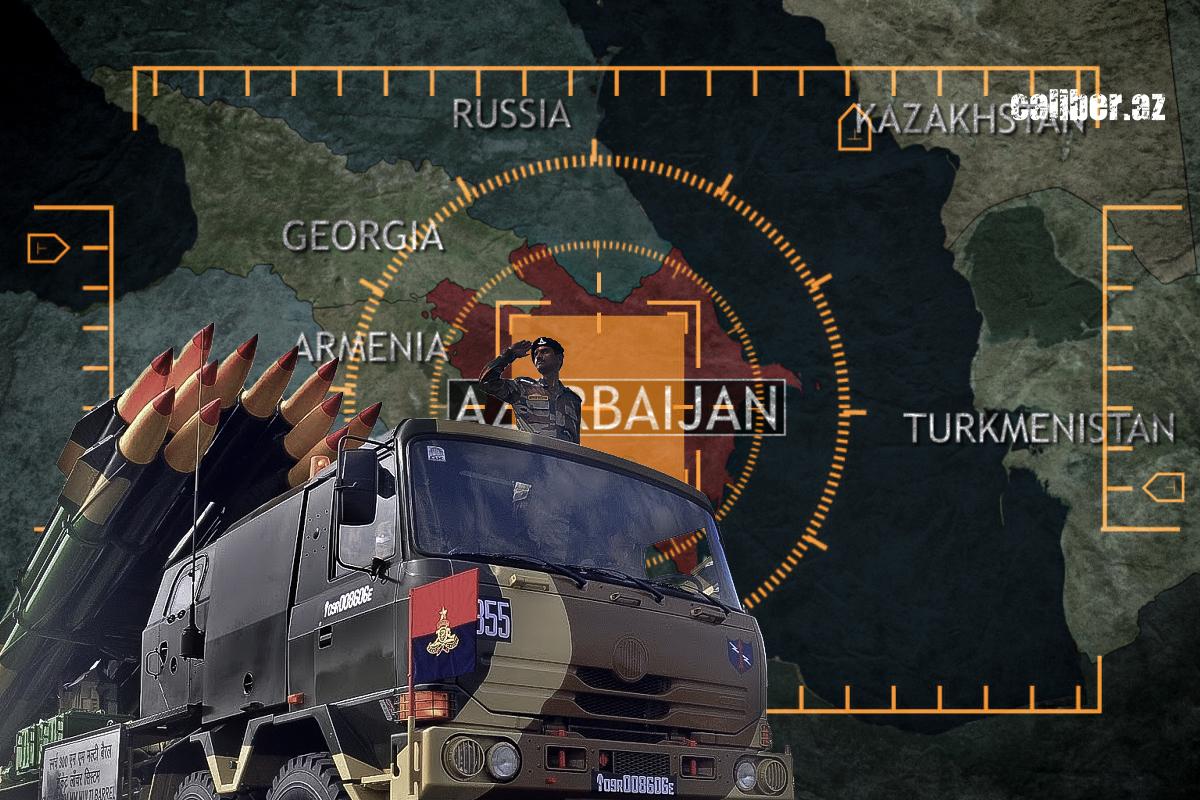India's support for Armenia risks economic ties with Azerbaijan New Delhi, Yerevan stir tensions in South Caucasus
India’s military support for Armenia is intensifying, with recent reports highlighting Armenia as New Delhi’s largest arms purchaser. According to Indian news agency IADN, Armenia has already committed $600 million to arms purchases from India for the 2024–2025 fiscal year, with expectations of further increases.
This significant acquisition of Indian and Western weaponry by Armenia reflects its ongoing aspirations for military reinvention, despite the underlying risks. The growing arms trade underscores India’s strategic interests in militarizing Armenia, aligning with its broader geopolitical goals in the region.
These measures are specifically aimed at countering Pakistan, a strategic ally of Baku. In 2017, Baku, Ankara, and Islamabad signed a trilateral statement to strengthen economic and trade relations, develop joint defense production, enhance their joint stance on international issues, boost parliamentary cooperation, and intensify efforts in combating terrorism. Additionally, the three countries conducted "Three Brothers" joint military exercises.
In January 2021, the Islamabad Declaration was signed, outlining plans to deepen political and economic cooperation among the three nations and to collaborate on peace and security initiatives. Later, in July 2021, the Baku Declaration was signed, aiming to further solidify the strategic ties among the three countries.
Azerbaijan, Türkiye, and Pakistan are enhancing their military and defense cooperation, which is evidently causing significant concern for the nationalist government of Narendra Modi in India. In response, India is arming and supporting Armenia in an attempt to counter the alliance of these three fraternal countries. Although the strong relations between Baku and Islamabad are not aimed at third countries, India is leveraging Armenia’s revisionist tendencies, fully aware of their target.
In this context, Baku has expressed its displeasure with Indian arms supplies to Armenia, criticizing the Armenian leadership for harboring illusions of potential revenge. Azerbaijani President Ilham Aliyev, during the presentation of credentials by new Indian ambassador, Sridharan Madhusudhanan, in May 2023, highlighted that revisionist forces are gaining ground in Armenia and territorial claims against Azerbaijan persist. President Aliyev questioned, "If Armenia truly seeks peace with Azerbaijan, why is it acquiring hundreds of millions of dollars worth of weapons?" He warned that such policies could lead to new threats in the region.

India's open hostility towards Azerbaijan began to manifest more clearly following Armenia's crushing defeat in the second Karabakh war. At that time, India signed a $40 million defense agreement with Armenia for the supply of four locally-produced Swathi radars at cost price. Even before this, India had demonstrated its sympathies; in March 2008, it sided with Armenia at the UN General Assembly by opposing a resolution proposed by Azerbaijan that sought to recognize Karabakh as territory occupied by Armenia.
India’s military and political support for Armenia has also been bolstered by Armenia’s backing of Indian policy in Kashmir. Given Armenia's strained relations with Azerbaijan, Türkiye, and Pakistan, it is clear that New Delhi will continue arming Yerevan, fueling tensions and potentially igniting new conflicts in the region.
Azerbaijan, strategically located at the crossroads of major transportation corridors, is of significant interest to numerous global players, from the EU to China and India. However, this strategic importance does not appear to be enough to deter Prime Minister Modi's government from its adversarial stance in the region or to temper its anti-Azerbaijani actions. By arming Armenia, India risks jeopardizing its established economic cooperation with Azerbaijan. For example, trade between Armenia and India surpassed $1 billion last year, highlighting the complex interplay between geopolitical actions and economic relationships.
India is a significant buyer of Azerbaijani oil, having imported over one million tons in the first half of 2023. Conversely, Azerbaijan buys pharmaceuticals, food products, and textiles from India. It would be more beneficial for India to focus its cooperation efforts on enhancing economic ties with Azerbaijan, a leading regional power, rather than asserting itself in the arms market through a financially struggling Armenia. Armenia, which has become a tool for advancing Western interests in the Caucasus, would face dire consequences in case of renewed conflict in the region. Neither Indian nor French arms are likely to prevent such a catastrophe.








